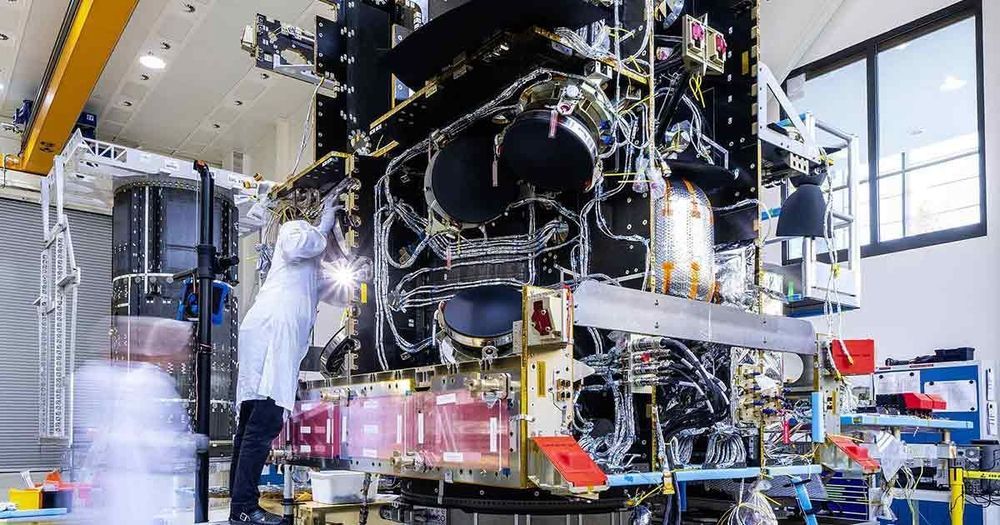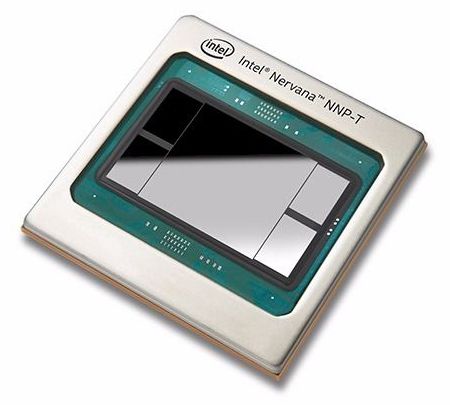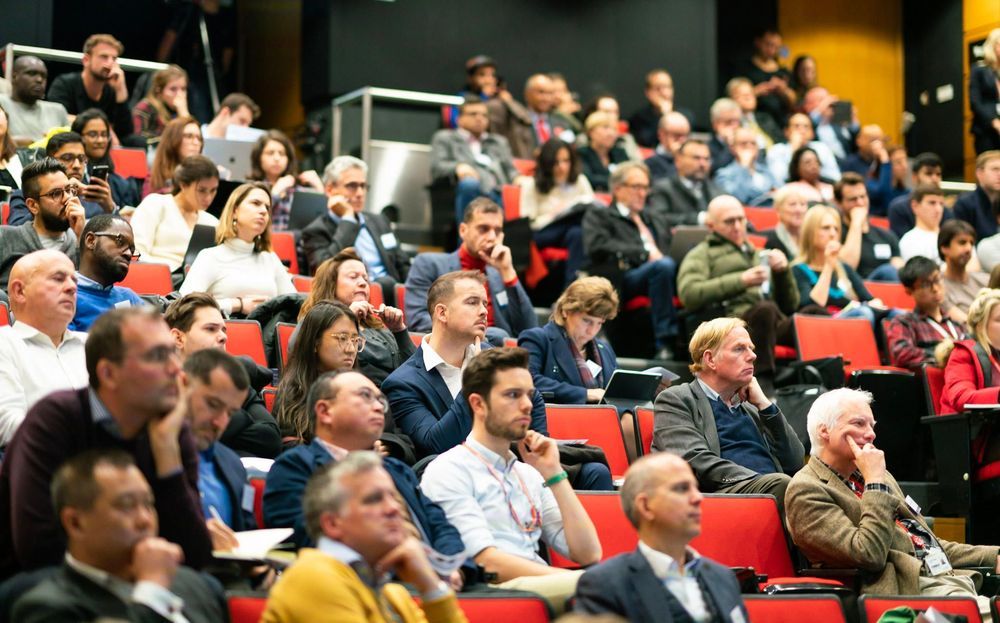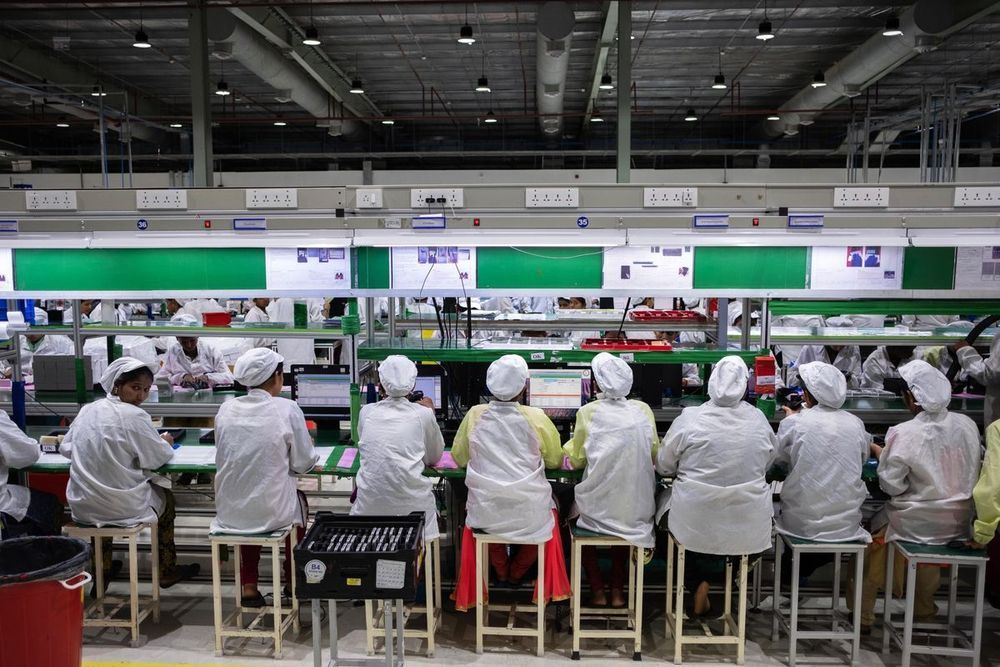Category: business – Page 228


Intel Throws Down AI Gauntlet With Neural Network Chips
At this year’s Intel AI Summit, the chipmaker demonstrated its first-generation Neural Network Processors (NNP): NNP-T for training and NNP-I for inference. Both product lines are now in production and are being delivered to initial customers, two of which, Facebook and Baidu, showed up at the event to laud the new chippery.
The purpose-built NNP devices represent Intel’s deepest thrust into the AI market thus far, challenging Nvidia, AMD, and an array of startups aimed at customers who are deploying specialized silicon for artificial intelligence. In the case of the NNP products, that customer base is anchored by hyperscale companies – Google, Facebook, Amazon, and so on – whose businesses are now all powered by artificial intelligence.
Naveen Rao, corporate vice president and general manager of the Artificial Intelligence Products Group at Intel, who presented the opening address at the AI Summit, says that the company’s AI solutions are expected to generate more than $3.5 billion in revenue in 2019. Although Rao didn’t break that out into specific products sales, presumably it includes everything that has AI infused in the silicon. Currently, that encompasses nearly the entire Intel processor portfolio, from the Xeon and Core CPUs, to the Altera FPGA products, to the Movidius computer vision chips, and now the NNP-I and NNP-T product lines. (Obviously, that figure can only include the portion of Xeon and Core revenue that is actually driven by AI.)

Landmark Summits Reveal the Future of National Economies
Deep Knowledge Group is delighted to have supported and participated in the landmark International Longevity Policy and Governance and AI for Longevity Summits that took place on November 12th at King’s College London, which gathered an unprecedented density and diversity of speakers and panelists at the intersection of Longevity, AI, Policy and Finance. The summits were organized by Longevity International UK and the AI Longevity Consortium at King’s College London, with the strategic support of Deep Knowledge Group, Aging Analytics Agency, Ageing Research at King’s (ARK) and the Biogerontology Research Foundation. Together they managed to attract the interest of major financial corporations, insurance companies, investment banks, Pharma and Tech corporations, and representatives of international governmental bodies, organisations and embassies, as well as leading media, and featured presentations and panel discussions from top executives and directors of Prudential, Barclays Business UK, HSBC, AXA, L&G, Longevity. Capital, Longevity Vision Fund, Juvenescence, the UK Office of AI, Microsoft, NVIDIA, Babylon Health, Huawei Europe, Insilico Medicine, Longevity International UK, the Longevity AI Consortium and others.
November 14, 2019, London, UK: Deep Knowledge Group executives Dmitry Kaminksiy and Eric Kihlstrom spoke at a landmark one-day event held yesterday at King’s College London with the strategic support Deep Knowledge Group. The event united two Longevity-themed summits under the shared strategic agenda of enabling a paradigm shift from treatment to prevention and from prevention to Precision Health via the synergistic efforts of science, industry, AI, policy and governance, to enable the UK to become an international leader in Healthy Longevity.
In Case of Apocalypse, Open This Arctic Code Vault
In this episode of “Hello World,” Ashlee Vance travels to Svalbard — an archipelago located at 80 degrees north — to participate in some doomsday preparation with GitHub CEO Nat Friedman.
#HelloWorldBloomberg #Svalbard
——-
Like this video? Subscribe to Bloomberg on YouTube: https://www.youtube.com/Bloomberg?sub_confirmation=1
Bloomberg is the First Word in business news, delivering breaking news & analysis, up-to-the-minute market data, features, profiles and more: http://www.bloomberg.com
Connect with us on…
Twitter: https://twitter.com/business
Facebook: /redirect?q=https%3A%2F%2Fwww.facebook.com%2Fbloombergbusiness&redir_token=9612XERxgwC_VdiyPL4L0lsfm0h8MTU3MzgxNDYzN0AxNTczNzI4MjM3&event=video_description&v=nIKrG3-WpAk
Instagram: /redirect?q=https%3A%2F%2Fwww.instagram.com%2Fbloombergbusiness%2F&redir_token=9612XERxgwC_VdiyPL4L0lsfm0h8MTU3MzgxNDYzN0AxNTczNzI4MjM3&event=video_description&v=nIKrG3-WpAk
Twitter: https://twitter.com/business
Facebook: https://www.facebook.com/bloombergbusiness
Instagram: https://www.instagram.com/bloombergbusiness/

$30 Billion of Proof That India’s Tech Scene Is Back
Hopefully the momentum at both PhonePe and Paytm will spur more Indian entrepreneurship, feeding a rebirth in India’s tech sector not seen since the IT-outsourcing boom two decades ago. While that gave us Tata Consultancy Services Ltd., Infosys Ltd., Wipro Ltd. and dozens more, most of those businesses focused on serving foreign needs.
Digital-wallet company PhonePe is preparing to spin out of the country’s biggest startup, Flipkart. A renaissance could be afoot.
The factory of the future?
Ocado, a British online-grocery company, is using air-traffic-control systems and AI technology to co-ordinate 700 factory robots. Its use of technology has made it a challenger to Amazon’s grocery-delivery business https://econ.st/2oTjzAG

African AI Experts Get Excluded From a Conference—Again
Ironically #AI has been proven to develop racial and gender bias. Gee, I wonder why?
For the second year in a row, more than a dozen AI researchers from African countries have been denied visas to a major AI conference in Canada.
Canada’s decision to refuse visas to African AI researchers seems ham-fisted, given that the country’s tech industry has been the beneficiary, in recent years, of America’s move toward isolationism. In 2017, Trudeau launched a visa program designed to attract high-tech workers—including those who found themselves unable to get into the US—by streamlining Canada’s visa-approval process. The recent decision to block access to NeurIPS for a diverse pool of talent appears to be a step in the opposite direction.
“It seems crazy,” says Joshua Gans, a professor at Toronto University’s Rotman School of Business who studies the impact of AI on innovation and economic growth. “What is the worst that happens? The scientists come here, stay here, and develop their AI here rather than in Africa?”\
Mathieu Genest, a press spokesperson for Citizenship and Immigration Canada, sent a statement that says the rules outlined by Canada’s Immigration and Refugee Protection Act (IRPA) apply “to everyone, regardless of nationality.” The statement adds that the department did receive the names of NeurIPS attendees who would apply for visas, which were shared with visa officers. And it says people can reapply, but should only do so if they have addressed the reasons their application was refused.
The Holy Grail of Clean Energy
For a long time it’s been said “fusion is the energy of the future. And always will be”. But now, with an influx of private investment, fusion startups are in the race for the holy grail of energy — limitless, clean power. A company based in Oxford, U.K. believes they’re close.
#BloombergGiantLeap #Science #Technology
——-
Like this video? Subscribe to Bloomberg on YouTube: https://www.youtube.com/Bloomberg?sub_confirmation=1
Bloomberg is the First Word in business news, delivering breaking news & analysis, up-to-the-minute market data, features, profiles and more: http://www.bloomberg.com
Connect with us on…
Twitter: https://twitter.com/business
Facebook: /redirect?redir_token=sMVnUVHkuLGdg_BtCeREE1L095R8MTU3MzM3MDUzM0AxNTczMjg0MTMz&q=https%3A%2F%2Fwww.facebook.com%2Fbloombergbusiness&event=video_description&v=l50ZUdGeRlI
Instagram: /redirect?redir_token=sMVnUVHkuLGdg_BtCeREE1L095R8MTU3MzM3MDUzM0AxNTczMjg0MTMz&q=https%3A%2F%2Fwww.instagram.com%2Fbloombergbusiness%2F&event=video_description&v=l50ZUdGeRlI
Twitter: https://twitter.com/business
Facebook: https://www.facebook.com/bloombergbusiness
Instagram: https://www.instagram.com/bloombergbusiness/

Engineers aren’t trained to be ethical—and that needs to change
This summer, the FaceApp debate exploded on social media, as people questioned the motives of the Russian engineers behind the technology that scanned millions of people’s faces, with no indication of what happened to the data given to the app.
Privacy is presumably top of mind for the general public, but people’s urge to literally see the face of their own future selves seemed to outweigh that threat.
FaceApp may serve no benefit beyond entertainment. But today, every company effectively becomes a tech company by leveraging advanced data analytics to fuel their business.